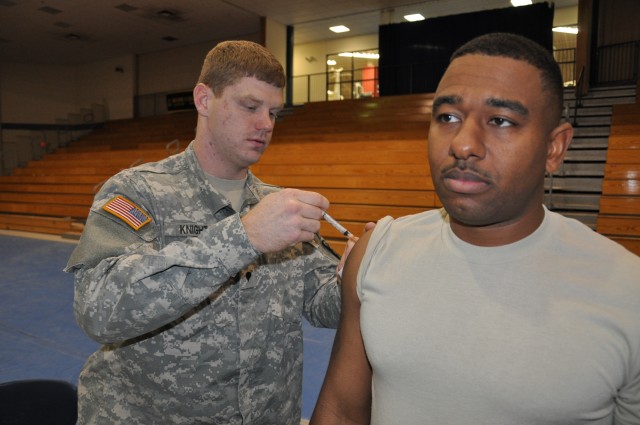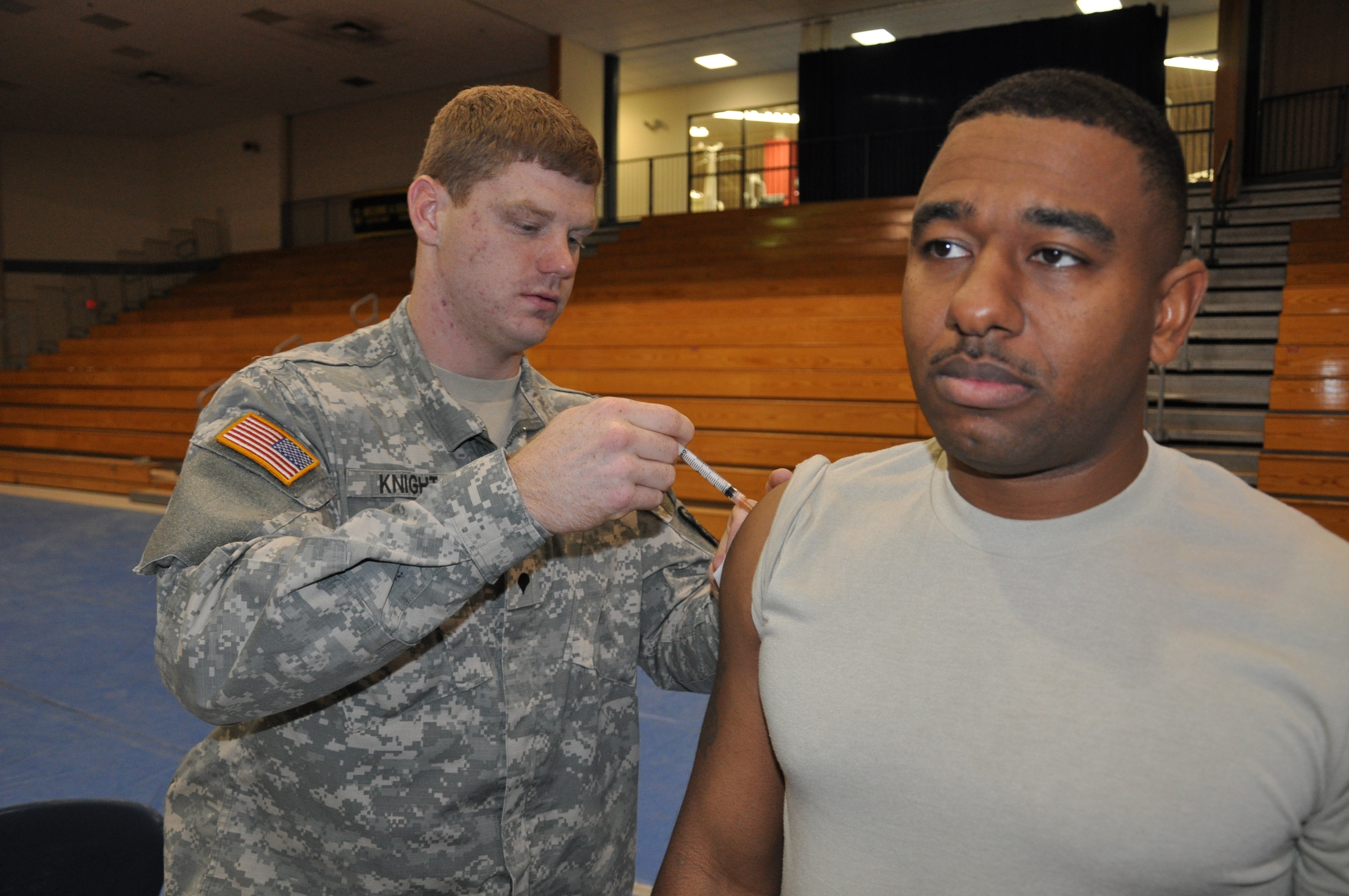FORT JACKSON, S.C. -- Fort Jackson's fight against H1N1 is in full swing, and all Soldiers are expected to be vaccinated against that strain of the flu virus by block leave, health officials said this week.
"We will get it done," said Maj. Soo Kim-Delio, Moncrief Army Community Hospital's 2009-2010 Flu Team officer-in-charge. "We want to get all Soldiers vaccinated before they start traveling home to be with their families."
The Department of Defense has ordered 3.7 million doses of H1N1 vaccine, which is being distributed to military personnel around the world. Fort Jackson Soldiers are receiving the vaccine as it arrives on post, Kim-Delio said.
"As soon as we get the vaccine in, we get it to the Soldiers in 24 to 48 hours," she said.
Approximately 3,000 Soldiers were vaccinated the week of Thanksgiving.
Fort Jackson officials have made immunizing all Basic Combat Training and Advanced Individual Training Soldiers against both the seasonal and H1N1 strains of the flu a priority before block leave begins Dec. 17.
Kim-Delio said between 4,000 and 5,000 more doses of the H1N1 vaccine are needed to inoculate all trainees before block leave begins.
"Our goal is to protect all of the basic and AIT trainees because they tend to be in the age group that is most at risk," she said.
Fort Jackson is expected to receive a total of 20,000 doses of H1N1 vaccine during the coming weeks, which will be used to inoculate all Soldiers, civilian employees and family members.
Currently, H1N1 vaccines are given only to Soldiers, healthcare workers, pregnant women, caretakers of young children and those between 25 and 64 years old with certain high-risk medical conditions.
But beginning Dec. 10, the H1N1 nasal spray will be available to everyone on post who is between 2 and 49 years old.
Because the vaccination is a live virus, it is not recommended for those older than 49. The injectable virus is available for those 50-64 with high- risk medical conditions.
The vaccine is not being offered to those older than 64 because they are considered to be at lower risk of contracting the virus.
"Hopefully we will have vaccinated everyone by the end of January," Kim-Delio said.
So far, 7,000 military personnel and 1,000 civilians at Fort Jackson have received H1N1 immunizations, Kim-Delio said. Another 21,600 military personnel and 7,000 civilians have received seasonal flu vaccinations, she said.
Health-care officials recommend that people get immunized and practice good hygiene to prevent the spread of both H1N1 and the seasonal flu. People experiencing flu-like symptoms are urged to stay home from work for at least 24 hours after the symptoms have subsided.


Social Sharing